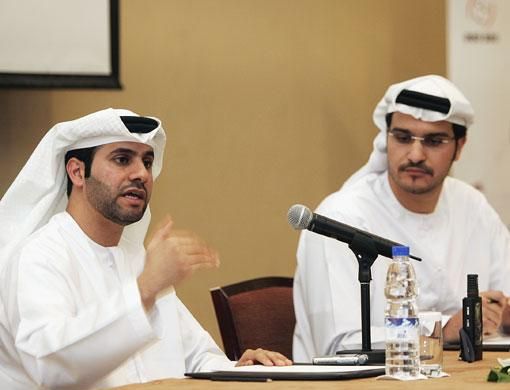Abu Dhabi: The biggest challenge to improving healthcare in Abu Dhabi is improving efficiency and patient satisfaction, not building new hospitals and increasing bed capacity, said the top four decision-makers at Health Authority Abu Dhabi (HAAD).
"There are about 3,500 hospital beds in Abu Dhabi and various investors are proposing to build 40 new hospitals adding another 4,000 beds, but HAAD will not agree if there is no need for them," said Dr Philipp Vetter, Head of Strategy.
Rebuilding and expanding the number of current hospitals within the next five years will depend on demand and population growth, he said.
HAAD yesterday announced its five year strategic plan which includes providing access to affordable healthcare to everyone and safeguarding patient safety in all healthcare services and building patient trust in the healthcare system.
The plan also hopes to promote health awareness and increase private sector investment and ownership of healthcare infrastructure.
Dr Ahmad Mubarak Al Mazroui, Chairman of HAAD, earlier told Gulf News that the authority is more concerned with the quality of medical services given to patients.
Zaid Al Siksek, CEO, said HAAD is reviewing applications of prospective investors. "If you over-supply in healthcare you diminish the quality of services provided and if you under-supply, you're not providing quality and proper care.
We are trying to balance the creation of new healthcare services versus existing healthcare services by evaluating existing healthcare facilities," he said.
Instead of focusing on future expansion, HAAD is currently focused on providing licensing to doctors in required specialties and licensing facilities and beds in areas of need.
"HAAD realises there is an immediate need for capacity in areas such as psychiatry, learning disabilities, trauma care, neonatal care and paediatrics. We have to ensure investors know this and build in such areas of need," said Vetter.
According to Dr Klaus Boecker, Director of Performance Monitoring and Operations, HAAD is looking for sustainability of healthcare and quality of health professionals working in hospitals. Some obstacles faced by HAAD include integration of data.
"The data was confusing, inconsistent, incoherent and not decision relevant. Now there's an integrated online system that is clear, consistent, coherent and decision relevant."
This is done through collecting useful data from hospitals and insurers by focusing on relevant information such as: the number of patients visiting a medical facility, what was wrong with them [their diagnosis], what was done with them, money paid during the visit, total duration and location.
Quality
"Where we want to go is clear - improve the quality of care for our population. Executing our strategy plan rapidly and effectively is our biggest challenge," said Vetter.
For HAAD healthcare is a journey that involves continuous and constant follow-up, learning, improvement, dedication from individuals and teamwork.
"Eighteen months ago, there was no definition of what a bed is and there was confusion with regards to day care surgery beds, neo-natal beds and beds for operating theatres. Now HAAD has created a clear definition of what a bed is," said Vetter.
Since its establishment in 2007, HAAD's vision has been to reduce bureaucracy and give providers and investors the freedom to make decisions that will benefit the patient.
However, there are certain requests that cannot be met by HAAD, if it does not meet market demand.
Services
Strategic plan
- Providing access to affordable healthcare to everyone in Abu Dhabi
- Ensure that healthcare providers achieve world-class outcomes
- Safeguard patient safety in all healthcare services and build patient trust in the health system
- Promote health awareness and healthy behaviour
- Enable informed patient choice of healthcare providers based on transparent outcomes data and level of customer satisfaction
- Promote effective steering of patients through the system and efficient use of resources
- Increase private sector investment and ownership of healthcare related infrastructure
- Ensure reimbursement of providers reflects activity, outcomes and customer satisfaction
- Ensure health system is prepared for all foreseeable emergency and disaster scenarios













